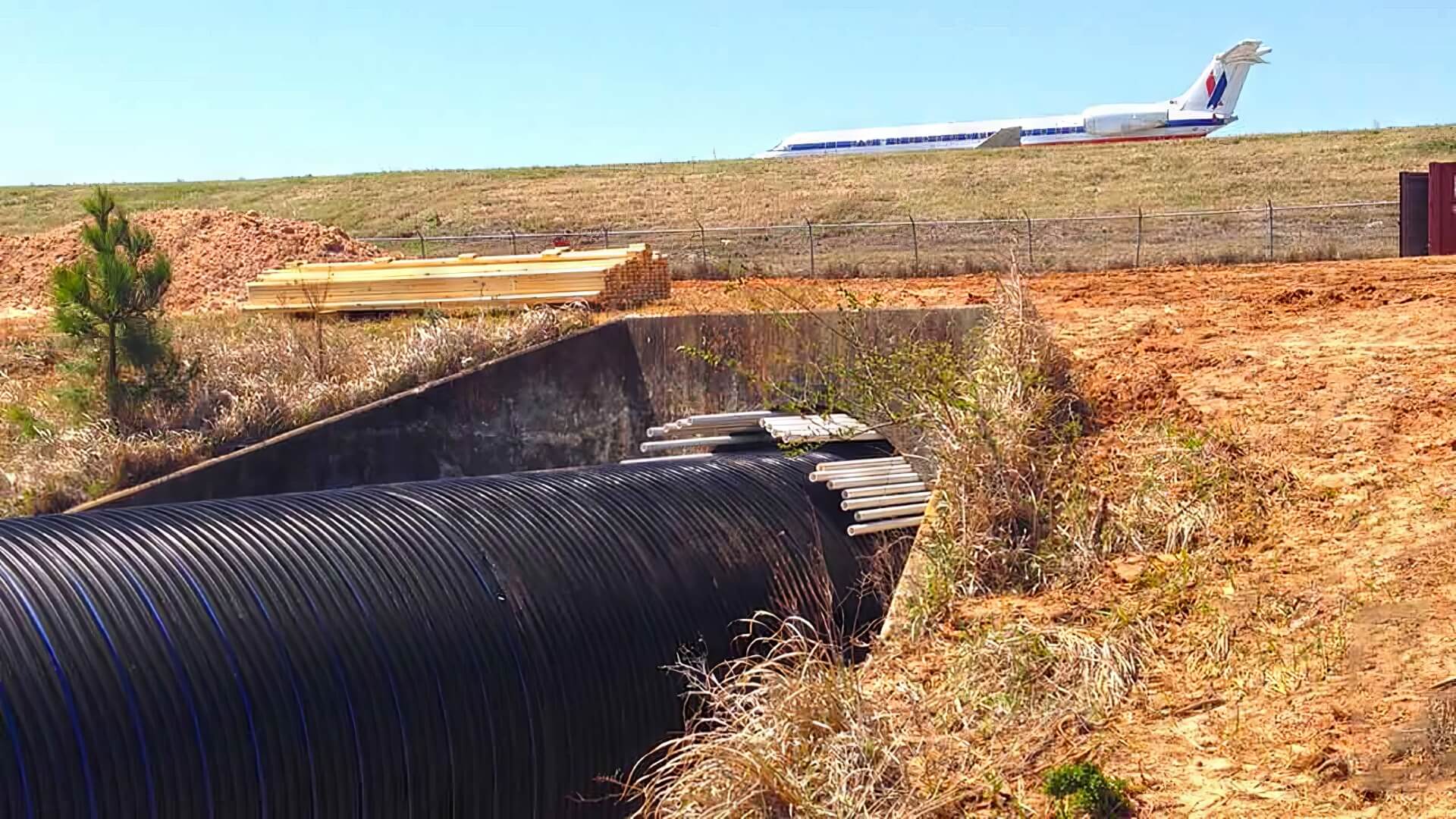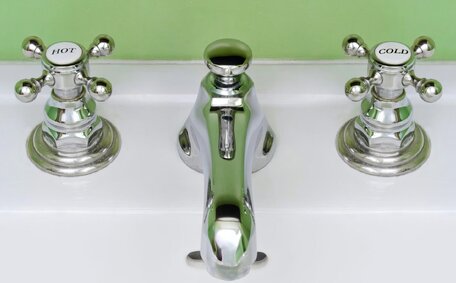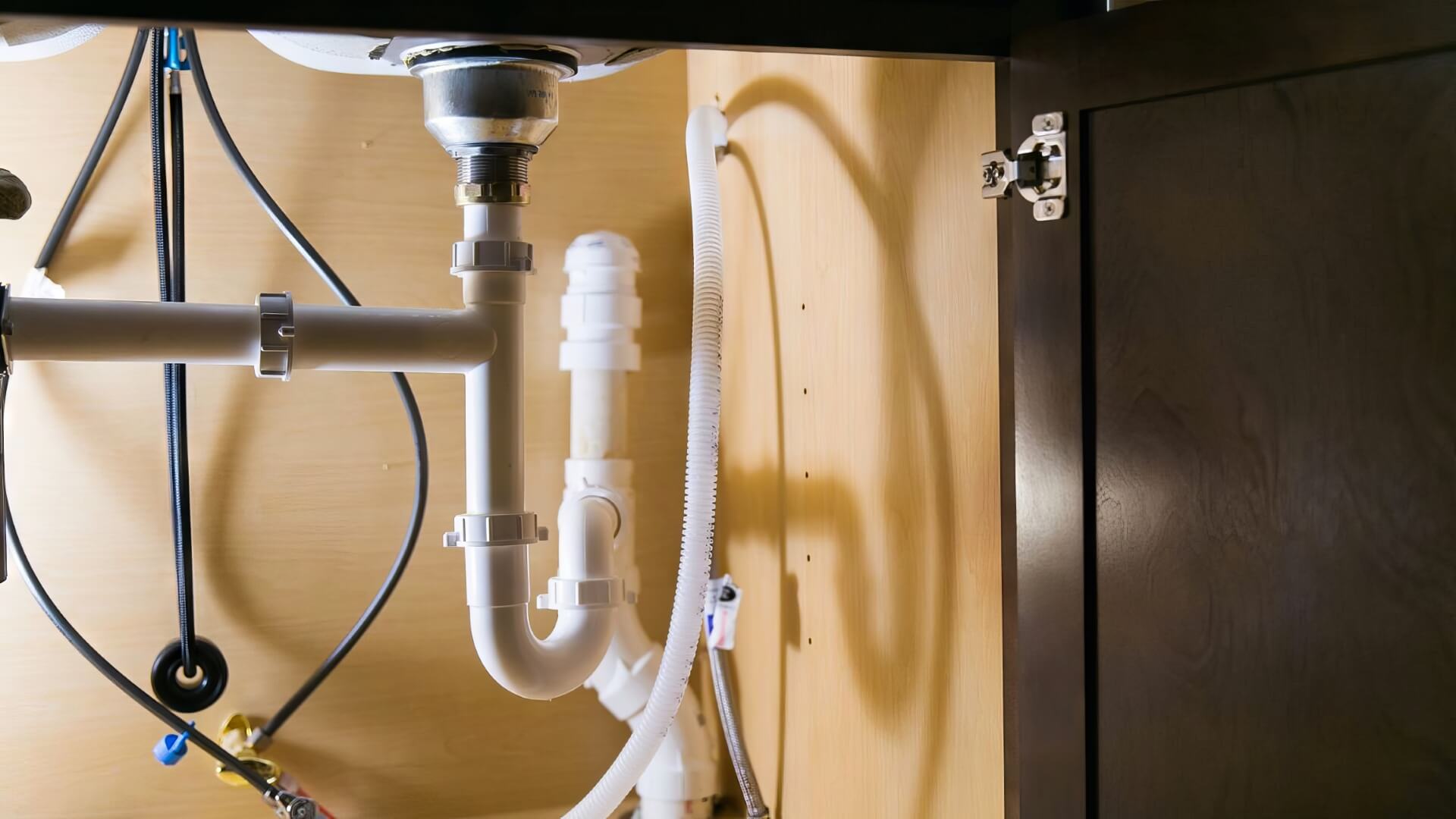
Does Pipe Relining Increase Property Value?
Pipe relining fixes damaged pipes without digging or replacement. It prevents leaks, damage, and improves drainage. This increases property value and saleability for under $2000.
Read MoreBlocked drains are commonly caused by normal household activities such as hair buildup, soap scum, and cooking grease being washed down kitchen sinks. These substances gradually adhere to pipe walls, restricting water flow and ultimately causing a blocked drain.
Homeowners can use a drain snake to remove tree roots early on, which might be affecting drainage and leading to blockages. As roots expand, they displace pipes, potentially leading to costly repairs due to broken pipes that gather debris and clog. Addressing minor drain issues with clearing blocked roots early prevents them from establishing themselves and causing expensive damage.
Affected drains can occasionally be cleared of small clogs from hair or grease with DIY methods, but severe obstructions often need professional attention. Addressing clogs promptly with preventive measures can halt sewage backflow into homes.
Grease, soap, and cooking oils often sent down your kitchen sink are the culprits behind your blocked drain issues. When hot grease combined with materials such as coffee grounds cools in pipes, it solidifies and adheres to the pipe interior. Bits of food waste adhering to the grease can cause blockage, building up and impeding water flow.
To prevent problems, refrain from disposing of cooking oil and fats down the drain. Preserve the integrity of your kitchen plumbing by collecting cooled grease in a container rather than pouring it down the drain. Wiping grease from pans onto a paper towel is a simple preventative step against drain blockage and reducing buildup.
Regularly washing grease down drains may lead to significant blockages that necessitate thorough cleaning.
Hair entering bathroom sinks and particularly the shower drain can cause major preventable drain clog scenarios. Hair strands that enter the drain cling to soap scum and solidified grease, slowly blocking water flow in the pipes. Over time, without effort to clean your pipes, this builds into a dense mesh that traps debris and blocks water flow.
Fitting efficient guards and strainers can mitigate hair-related drain blockages. Regular maintenance of hair catchers can help prevent blockages, significantly reducing the likelihood of accumulation in your pipes.
Also, cleaning out basin and shower drains after use will prevent blocked passages due to accumulated hairs. Weekly cleaning helps prevent the formation of large hair clumps that can cause blockages. Address minor concerns swiftly to fix blocked pipes before they escalate.
Flushing or pouring items down drains that aren’t meant to enter plumbing can cause blockages in the piping system. A variety of items, including wet wipes and feminine hygiene products, should never be thrown down toilet, as they can prevent clear any pathways and contribute to blockages.
Although some of the most misleading packaging claims these items are "flushable", they fail to disintegrate as toilet paper does, posing a risk to your pipes. Over time, foreign objects accumulate at bends inside drainage pipes, trapping other debris to create a dense mass blocking water flow.
To avoid blockages, it’s crucial to flush only bodily waste and toilet paper. It’s wise to avoid pouring cooking fat or grease into your sink as well. By following these tips and disposing of foreign objects in the bin, you prevent them from entering your plumbing system altogether.
When it comes to foreign items becoming lodged in drainage pipes, extensive plumbing work may be required. Among the things can do is to attempt to remove the obstruction with drain pumps or plungers before it pushes the object deeper. The best solution is engaging professional plumbing services where a professional plumber can also carefully extract the item and thoroughly clean the pipes.
Tree roots infiltrating underground drainage pipes can potentially damage your plumbing system, a major but often overlooked cause of severe blockages. As nearby trees grow, their roots spread rapidly, potentially affecting your sewer lines in search of nutrients and water. Root tips are potentially dangerous intruders that can turn into one of the most common culprits behind blocked pipes.
Once inside, roots become one of the common causes blocked by thriving in the moist conditions of the pipes. They continue growing along pipe walls, eventually displacing and fracturing pipe structures. This enables soil, debris and more roots to enter pipes, creating perfect conditions for major blockages to form.
Initial indications such as root ingress can take subtle forms, not always obvious as signs of a blocked drain to homeowners. Slow draining water, gurgling sounds, sporadic sewer smells and toilets needing multiple flushes to clear waste indicate roots are present inside plumbing.
Seeking professional drainage assessments and pipe inspections from qualified plumbers like Leichhardt Plumbing is crucial once root intrusion is suspected. With specialist equipment like drain cameras, call us to visually confirm the locations and severity of any potential issues. From there we can recommend appropriate repair solutions to prevent extensive and costly damage occurring.
Adopting regular habits will help keep your drains clear and preventive.
Setting aside a few minutes for consistent drain maintenance can cease the gradual buildup of clog-causing substances.
Regarding bathroom maintenance, here are some tips: remove drain screens and hair catchers, then pour hot water down to rinse away residue. Clean out any debris, as this can make before rinsing under warm water more effective.
Utilising a bent coat hanger drain technique to gently tease out materials can be effective for clearing blocked drain, especially after dissolving blockages with a baking soda mixture. After the hot water, let sit for an hour with a cup baking soda to keep the water scum softened.
Let the baking soda sit for an hour before rinsing with a kettle of boiled water.
As it fizzes and reacts, the mixture helps dissolve grease, hair and other grime clinging inside pipes. Create an eco-friendly cleaning solution by combining vinegar and baking soda, which activates when poured down the drains.
Avoid water pooling in strainers to prevent clogs in adjoining pipes.
Instead, wipe grease from pans using paper towels and place food scraps in the bin.
Installing drain screens over sink and shower drains prevents hair and debris entering the drainage system. Mesh screens sit neatly over drain holes, catching stray hairs while allowing water to pass freely.
For basin and kitchen sinks, opt for flat round screens that sit flush inside the drain opening, a simple solution that can unblock drains by intercepting debris. Many feature small handles for easy periodic removal and cleaning. Square or rectangular drain screen baskets work well for shower floors, capturing hair and soap scum before reaching pipes.
For optimal drain health, remove and clean screens weekly to extract debris.
Discover how clean stubborn grime can be using an old toothbrush and a non-toxic bathroom cleaner. After cleaning, immediately reinsert screens to halt further debris passing into plumbing.
Routine checks of screens help prevent hair from reaching and clogging internal pipes. Address minor early buildup immediately rather than extensive obstructions forming requiring professional hydro jet drain cleaning.
Adopting a routine drain cleaning regimen helps keep household plumbing functioning smoothly. A weekly or monthly cleaning routine is effortless and can prevent significant blockages, empowering you to address issues proactively.
Set aside 10 minutes each week to actively maintain drains. Conclude maintenance by pouring a kettle of recently boiled water down the drain to dissolve residue.
For bathroom sinks, use a bent wire hanger to gently hook out and extract accumulated hair and soap scum clinging to pipes, then flush with boiling hot water. For a deeper clean, pour 1 cup of baking soda down the drain, let it sit for an hour to dissolve grease, and then rinse.
Monthly, clear drains with a solution of half a cup of baking soda and 1 cup of white vinegar, then rinse with hot water after 5 minutes.
Alternatively, for a green approach, try using an eco-friendly enzyme as a natural cleaner monthly. The active enzymes work their way into the drain and dissolve blockages without using caustic chemicals. Follow package directions, typically pouring the liquid down drains, allowing it to work overnight before rinsing.
For minor drain clogs, a number of effective diy tips exist, such as using boiling water, where heat and force can dislodge debris.
Pouring freshly boiled water down the drain can effectively dissolve grease. The heat from boiling water can melt grease and the water’s force can displace debris. Pause pouring if water begins overflowing drain openings.
Use caution with boiling water as excessive heat may harm pipe joints and disregard for maintenance can damage your pipes. Allow kettles to sit 3-5 minutes after boiling ends to ensure you don’t end up with water that’s too hot for your pipes.
Using suction, a vigorous plunger movement can dislodge sink and toilet blockages. Sink and toilet plungers use suction when pumped vigorously to dislodge blockages.
With decisive using plunger action, quickly and pumping it up and down can shift the clog, clear a clogged drain and improve water flow.
Inserting a hand crank auger and then flushing water down the drain breaks up debris. Twist a hand auger slowly in a clockwise motion to drive its spiral end toward the clog, then flush with hot water.
Following this, flushing with hot water can cleanse your pipework.
Attempt these methods twice before contacting qualified drain technicians if problems persist. Attempting forceful DIY drain cleaners beyond boiling water risks damaging pipes.
Severe drain blockages exhibit clear warning signs requiring urgent professional assistance. Signs of severe blockages include water backing up in sinks or bathtubs, gurgling noises from drains, and ongoing unpleasant smells.
Sewage visibly overflowing from pipes into your home signals a major clog. Similarly, if water drains slowly from multiple fixtures, an underlying issue likely exists. This indicates substantial blockages inside your drain system beyond DIY capabilities.
When comes to household health hazards, wastewater backing up internally also risks exposure to bacteria, viruses, and dangerous gases. Seek emergency plumbing services immediately in such scenarios before contamination spreads.
If intense, rotten egg odours frequently emanate from sinks and shower drains, sewer gases are likely escaping into your home. Persistent bad smells act as signs blocked within the system, indicating possible fractures in drainage pipes.
Pervasive odours can serve as signs blocked drain, confirming significant debris accumulation and urging prompt action to protect your property.
If multiple fixtures exhibit draining issues simultaneously, tree roots have likely infiltrated your underground drainage pipes. As roots grow, they displace and fracture pipe structures causing major obstructions.
Seeking professional drain inspections using pipe cameras confirms if tree root infestations exist. From there, qualified technicians can recommend appropriate solutions to resolve current damage and prevent escalation.
Rather than opting for short-term solutions, consider calling your local experts like Leichhardt Plumbing to address severe clogs. Our extensive local experience, cutting-edge equipment and minimally invasive hydro jet drain cleaning keeps plumbing operating safely at peak efficiency.
Pipe relining fixes damaged pipes without digging or replacement. It prevents leaks, damage, and improves drainage. This increases property value and saleability for under $2000.
Read MoreThe efficiency of your hot water system can be impacted by various environmental factors. Proper insulation, temperate climates, and appropriately sized systems lead to enhanced efficiency, lower energy bills, and reduced emissions. Compare different hot water systems and learn tips to maximise efficiency.
Read MorePipe relining is the most effective way to permanently solve bad sewer smells without the need to dig trenches or damage your property. Our trenchless pipe repair specialists use specially designed pipes to reline your old, damaged pipes. This stops cracks and leaks that let sewage smells flood your home.
Read MoreLeichhardt, 2040 NSW
We will call back as soon as possible.




